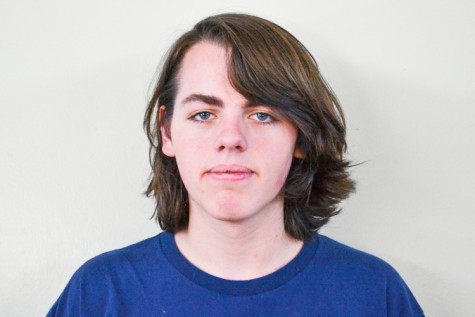A New Spin on South Park
October 29, 2015
Halfway through their nineteenth season, South Park, an animated comedy that first aired in 1997, has taken a new approach to their episodes, making each new episode a direct continuation of prior episode.
South Park has styled some episodes in this manner before, such as the Imaginationland Trilogy and Pandemic; however, they have never centered an entire season around continuing themes. Last season, they lightly touched on this, sometimes referring back to things that had been a focus in previous episodes in the season. Though in a different style, the show continues to hit on relevant issues in that blunt, vulgar, and satirical manner that viewers are used to.
In addition to the new style the episodes have taken, there have been some other changes. For example, principal Victoria, who has been the principal of South Park Elementary since the show first aired, was fired and has not been featured since. Surprisingly, she was fired for an issue regarding political correctness and not for her other ludicrous behaviors in the past, such as attempting to murder fourth grader Eric Cartman (see season 15 episode 10, “Bass to Mouth”). Her departure led to the hiring of PC Principal, an all new character who is overly obsessed with political correctness.
South Park has always been critical of pop culture and trending topics, but it is not uncommon for the show to generate episodes unrelated to social issues, though it is rare that an episode does not target at least one particular group. This season, however, has stayed true to its satirical nature, consistently hitting on social and political issues such as hostility regarding political correctness, the presidential nomination (more specifically the nominee who wants to build a wall), urban development, yelp reviewers, and feedback on social media.
A major difference that has become apparent in the past few seasons of South Park, but has been more dramatically emphasized this season, is that the apparent “bad guys” seem to win each time. Though South Park is notorious for having a darkish grey moral compass, it was usually represented in themes and character actions. This season, when clear negative influences are introduced to the town –like PC Principal, the urbanized district (SodoSopa), Mr. Garrison’s political campaign (which was entirely based on racism against Canadians), and a “safe space,”– there is no resolution at the end of the episode. Normally, there is at least some moral wrap up which begins with Kyle saying “”I learned something today.”
Since the second episode of the season, in which seemingly all the characters on the show made it clear that they were fed up with Kyle’s speeches, there has been an obvious lack of morality in the town. In past seasons, characters often became entranced by popular interests or ideas that ultimately lead to the destruction of the town, but almost always changed their ways or made some ethical realization at the end that reverted the state of the town back to normal, allowing the following episode to start fresh.
The only exception to the absence of moral resolve is the episode “You’re not Yelping,” which illuminated how many Yelp reviewers abuse their status in order to receive better treatment at restaurants. The episode concluded with all of the restaurants agreeing to tolerate the Yelpers after previously banning them altogether, which had been the consensus earlier in the episode. Instead of catering to their demands at the threat of poor reviews, all of the restaurants now provide the food critics with the “Yelper Special,” a dish each restaurant uniquely prepares in order to meet the Yelper’s need to be praised.



